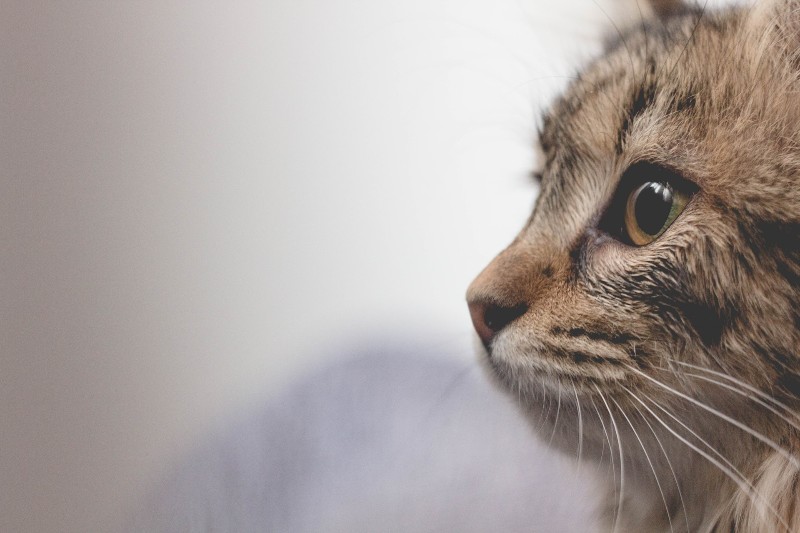When humans cry, we typically cry with tears. And we have many reasons why we cry – we might be happy, sad, or in pain. Cats also feel those emotions and sensations, but many have always wondered, can cats cry? And if they cry, do they cry with tears?
Can cats cry?
Cats have a bunch of ways to vocalize what they’re feeling – they meow when they want to greet us (or want something from us), they purr when they’re relaxed, they chatter when excited, and they hiss when threatened. But most people have heard a cat cry in the past and present – because cats do cry!
How does a cat cry sound?
Cats let out a whimper when they’re sad or in pain. The sound of a cat crying is of a lower frequency when compared to their typical meows; the duration of a cat whimper or cry is slightly longer than their average vocalization.
Do cats cry with tears?
Humans are the only known mammals to cry with tears. While other animals also cry when they’re in emotional or physical distress, they’re not known to cry with tears. One of the few instances why an animal – like a cat or other animals – would tear up is to lubricate their eyes.
If your cat is crying with tears, there might be irritants in their eyes that need to be flushed out. They might also be allergic to something or they’re dealing with an infection. If you think this is the case, you should take them to your trusted veterinarian.
Why do cats cry?
If you own a cat, or you’ve been around cats long enough, you’d instantly know the distinction between cries and happy meows. If your cat is crying, they might be trying to tell you one (or some) of the following:
- Your cat might be hungry or thirsty
One of the first things that a kitten learns (or instinctively knows) is to cry when they’re hungry or sad. That’s because kittens are born without sight and hearing; they’re also unable to crawl – they develop these skills later on as they develop further.
Therefore, the only way that they can let their mom know that they’re hungry is by crying. And this is a trait that sticks with them throughout their lives – that’s why they’ll most likely “cry” for your attention as well when they’re hungry or thirsty.
- They might be uncomfortable or in pain
Cats are known to be good at hiding their aches and pains. Because in the wild, being in visible pain equates to vulnerability. And as part of their survival instinct, they shouldn’t let themselves seem like an easy target for other predators.
However, when they can no longer hide their pain, they might vocalize it through crying. When this happens, you need to pay attention to them – and find out right away what your cat is trying to tell you.
Kittens are also unable to regulate their body temperature – they’re only able to do this when they’re at least 5 weeks old. This is another reason why a kitten would cry – to signal to their mom that they’re cold. Typically, the mommy cat will snuggle with her babies to keep them warm.
- Your cat might be sad
Cats are notoriously “mean” to their owners. However, cats are very social animals who very much love their human parents. That’s why many of them would cry when they’re left alone – or in an area where they can’t interact with their owner.
A momma cat might cry too when she can’t find her babies. Likewise, kittens may cry when their mom is nowhere to be found. But overall, cats feel sadness – and they’ll sometimes express it by crying.
- They’re probably afraid
Cats dislike unfamiliarity. That’s why they often approach unfamiliar objects, people, animals, and surroundings with caution. And when they’re left with no choice but to deal with the unknown, they might sometimes cry – as they’re scared of the situation that they’re in.
For instance, if a cat is lost or introduced to another person (or pet), chances are, they’ll cry as a signal for help – and that they want to be returned to their safe space, one that’s familiar and comfortable for them.
Summary
If you’re wondering, “Can cats cry?” – the answer is yes. However, they don’t cry with tears as we humans do. But just like us, cats will also cry when they’re in pain, scared, uncomfortable, or sad. There you go – turns out, they’re not exactly heartless little rascals!



